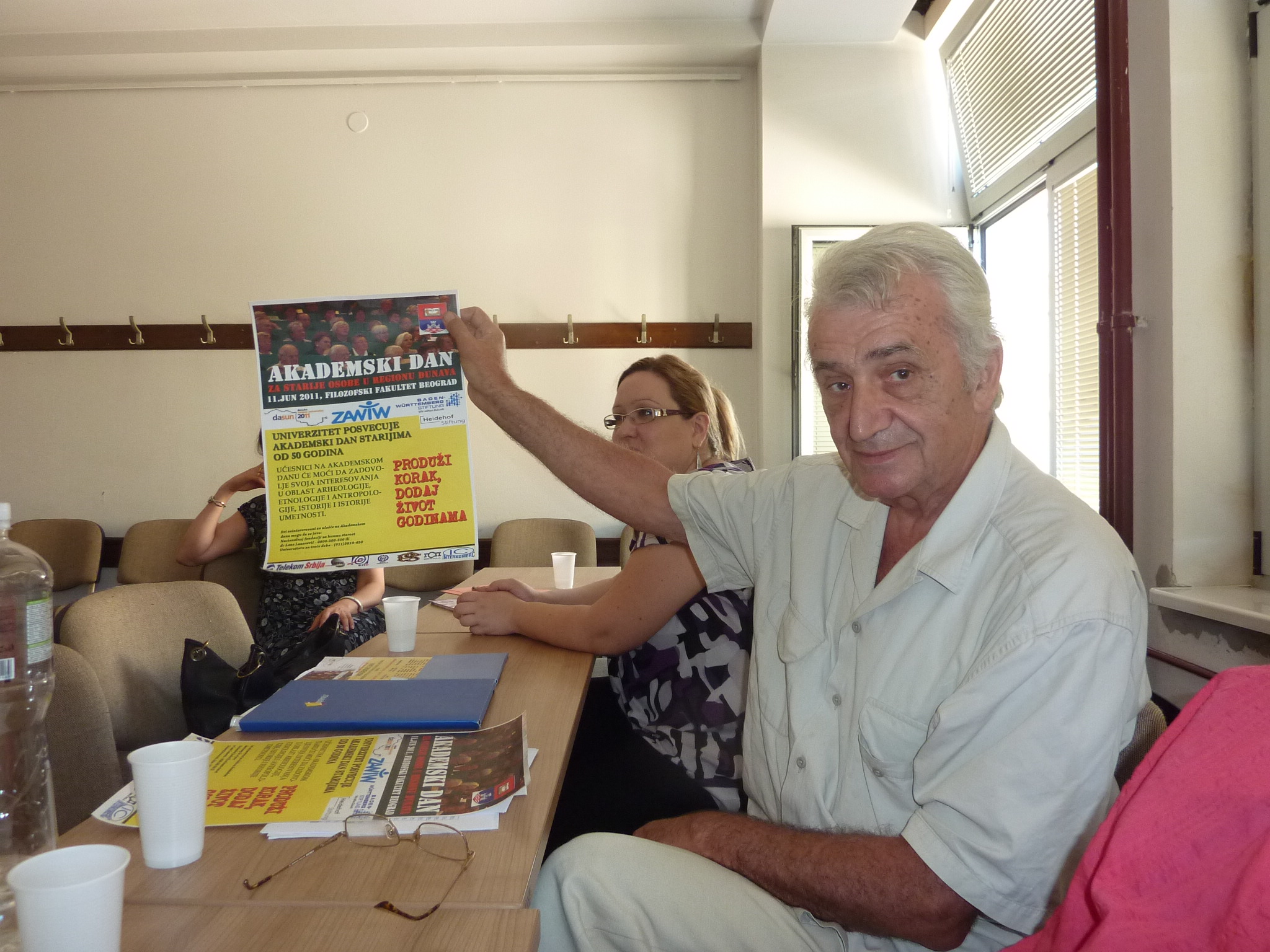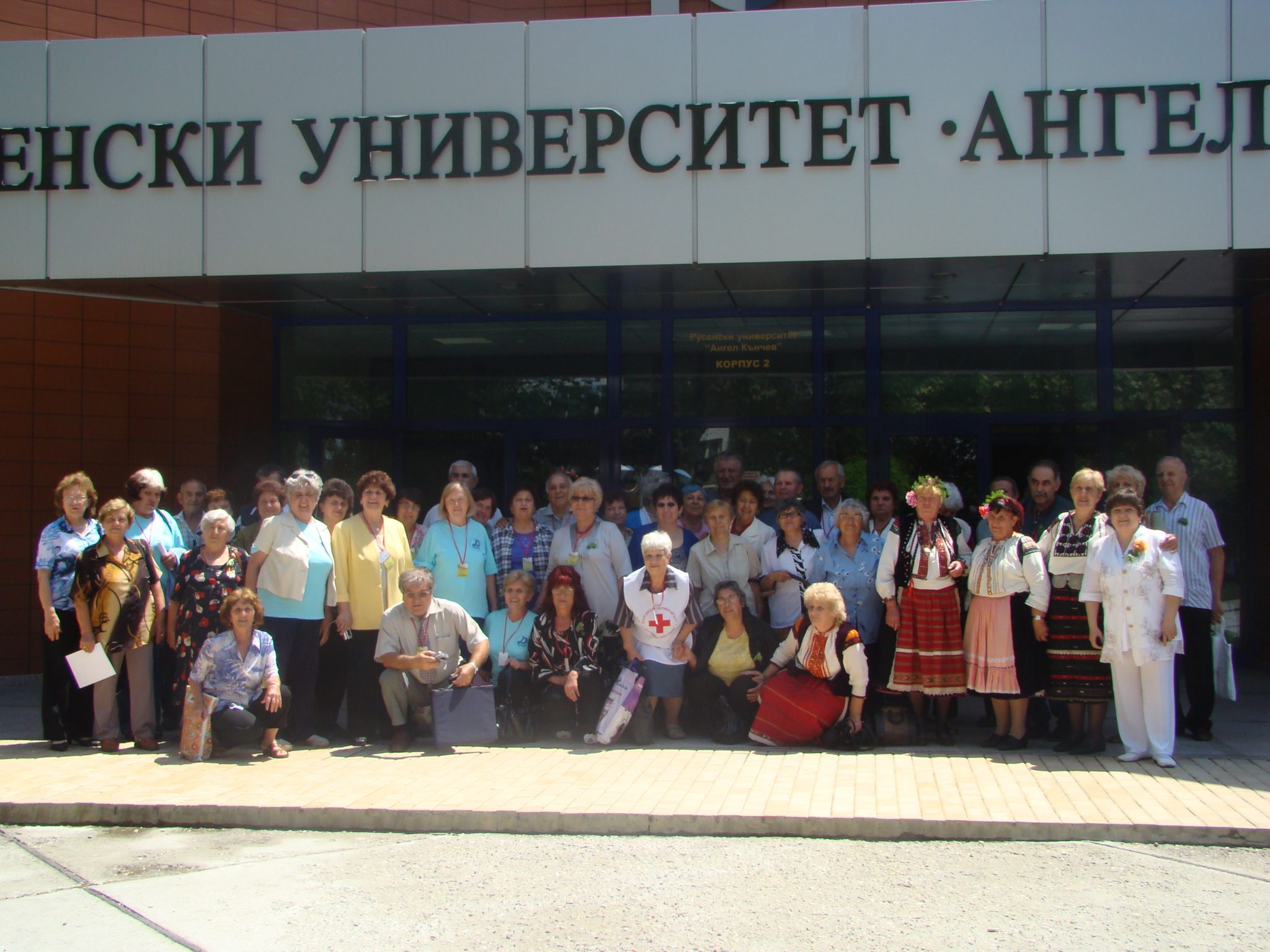Danube Seniors’ Universities (DASUN)


Aim
The project’s goals are:- Developing university based education programmes for the target group of “old adults” and making it accessible to the public in co-operation with education and culture associations
- Defining (through analyses of the organisations, teachers and representatives of the target group) and implementing conditions that foster quality - LLL offers for old adults in the partner universities in the Danube region
- Giving old adults the opportunity to be further educated, to deepen their competences and implement them in new, meaningful tasks
- Initiating and documenting the exchange of examples of good practice among the institutions of senior education
- Building a basis for future co-operation and a network of educational institutions and NGOs in the Danube region
Full Description
All European societies are affected by the demographic change and the rapid changes of economy, science and technology. A necessary precondition for social participation in a society based on democratic values is that citizens are informed about the principles and consequences of the change processes. Only then can they position themselves and become actively involved in society. Lifelong learning (LLL) of people of every age group, also old adults, is therefore not a luxury but a social necessity. It is thus the responsibility of universities to attend to their mission of education also in the area of general continuing education.
On this background, the DASUN Project aimed to develop, in cooperation with four universities and NGOs from 4 Danube countries (Bulgaria, Romania, Serbia and Germany), concepts for academic continuing education program for old adults as a bridge between science and citizens, designed to fit to the local frame conditions. The concepts that have already been practiced by the Zentrum für Allgemeine Wissenschaftliche Weiterbildung (ZAWiW) der Universität Ulm in Germany were individually adapted to the circumstances of each partner and subsequently implemented and evaluated, in order to develop sustainable concepts and educational praxis.
The project DASUN contributed to the building of bridges between universities and NGOs in four Danube countries and fosters the idea of LLL and active ageing for old adults in the Danube region.
Project partners:
- Centre for General Scientific Continuing Education of Ulm University, Germany
- University of Ruse Angel Kanchev, Ruse, Bulgaria
- Window Association of Romania
- University of Belgrade, Serbia
- National Foundation for Human Aging dr Laza Lazarevic, University of the Third Age, Belgrade, Serbia
- The State University of Library Studies and Information Technologies, Sofia, Bulgaria
- Association of University Libraries, Sofia, Bulgaria
- University of Craiova, Romania
- Union of Pensioners, Ruse Region, Ruse, Bulgaria
Step by Step Explanation
-
1
Survey on elderly people needs.
-
2
Practical training in Computer and Internet Usage (60 hours, 4 hours in 2 days per week).
-
3
Developing an educational program in the subject area Healthy Lifestyle.
-
4
Developing an educational program in the subject area Bulgarian and Foreign Cultural-historical Heritage – Travelling from the Past to the Future.
-
5
Developing an educational program in the subject area Solidarity between Generations – a Message to the Future.
-
6
Evaluation of the project results. SWOT Analysis.
-
7
Developing two books on the project results in English and in Bulgarian languages.
-
8
Dissemination of the results.
Results
Implemented Methods
Practical Training in Computer and Internet Usage
The method serves to consolidate or apply knowledge, skills and competencies in practice. It consists of deliberately carrying out certain actions and repeating them in order to form and improve one or other skills and habits. The character and the methodology of their application depend on the specific curriculum, as well as on the level of preparation and development of elderly learners.
The applied method created conditions for intergenerational learning aimed at computer searching and using information in educational subject areas which are of interest to old adults from the Danube Region. Search topics were:
- Computer and Internet Usage
- Healthy Lifestyle
- Bulgarian and Foreign Cultural-historical Heritage – Travelling from the Past to the Future
- Solidarity between Generations – a Message to the Future
This method created a new world which matches contemporary science and new technologies achievements with personal competencies, knowledges, skills, experience, abilities and specific qualifications of old adults.
Drama Game
Drama game is a basic learning activity. This is how students are stimulated to think and experience their individual or social problems. Older learners learn to explore and experiment with their problems, events and relationships. Drawn by the drama, they draw their knowledge and experience of the real world.
The method uses a wide range of educational tools such as traditional rituals, scene, national costumes, music, songs, food, flyers, presentations, and posters, which has a strong impact on the learners and the audience.
The method Drama Game developed the European awareness of elderly project participants and their active social competencies for society development within the European community.
It created cooperation conditions between the generations by exchanging ideas, restoring old customs, presenting traditional food, clothes, etc. aiming at learning, preserving and popularizing the cultural-historical heritage of the Danube Region as travelling from the past to the future.
Survey
The application of the method contributes to the development of an educational program with themes, subtopics, and educational tools enhancing the role of third-age people in the civil dialogue process at all levels; helped the exchange of ideas and knowledge between generations, nations and cultures; contributed to improving the social environment in the Danube countries through the organization of continuing education.
The method was used in the project to define (through analyses of the organisations, teachers and representatives of the target group) conditions that foster the development of university-based education programmes for the target group of “old adults” as a bridge between universities and NGOs, between science and civil society on the basis of the educational needs of people.
It defined the needs of old adults and the offers for Lifelong Learning in the partner universities and to foster the idea of active aging and European identity for old adults in the Danube Region.



